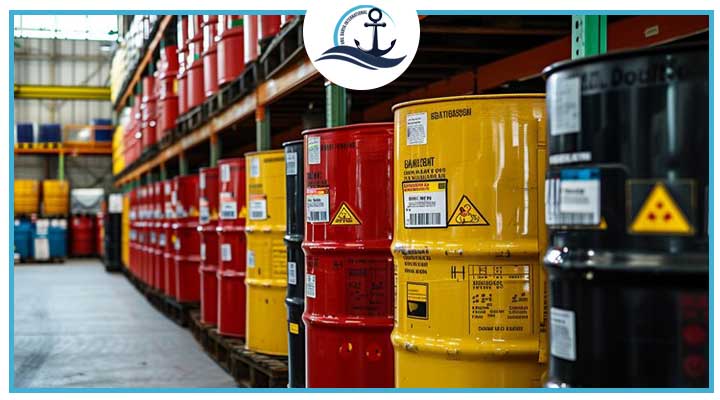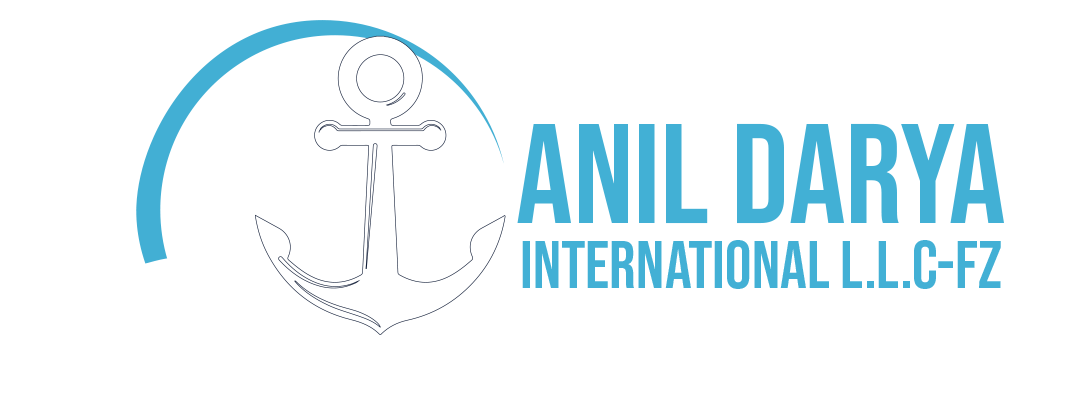

A Comprehensive Guide for Traders and Businesses
Transporting dangerous goods is one of the most complex yet essential aspects of international logistics. Many traders and businesses involved in import and export deal with goods that are hazardous in nature, such as chemicals, lithium batteries, or compressed gases.
Dubai, as the largest transit hub in the Middle East, with Jebel Ali Port and Dubai International Airport (DXB), holds a unique position in handling and moving such goods. This has made many regional and international companies choose Dubai as their preferred route for dangerous goods transportation.
What Are Dangerous Goods?
According to international regulations, dangerous goods are items that, if not handled properly, can cause fires, explosions, or pose threats to human health.
Common examples in Dubai:
- Lithium BatteriesA large portion of electronic goods imported from China into Dubai contain lithium batteries. Due to their risk of explosion under improper conditions, they require special packaging and handling.
- Industrial Chemicals:Many industries in the UAE import chemicals for production or re-export via Jebel Ali Port. These substances must be carried in specialized, approved containers.
- Compressed and Liquefied Gases:Particularly in the oil and gas sector, which is a vital part of the UAE’s economy. Transporting such gases requires secure tanks and containers.
- Paints and Solvents:Widely used in Dubai’s construction and industrial sectors, these items are highly flammable
Why Is Dangerous Goods Transportation Important?
Risk Management: Dangerous goods leave no room for human error. Adhering to international standards significantly reduces the risks of fires or explosions.
Regulatory Compliance: In Dubai, transporting such goods without the required permits and documentation is impossible. Logistics companies must strictly follow IMO and IATA guidelines.
Business Reputation: Companies that ensure safe and professional handling build trust with customers and international partners.
International Regulations and Standards
IMO
IATA
MSDS
IMO (International Maritime Organization): Responsible for setting regulations on transporting dangerous goods by sea. In Jebel Ali Port, these rules are strictly enforced.
IATA (International Air Transport Association): Defines standards for transporting dangerous goods by air. Every shipment must obtain clearance before being loaded at Dubai International Airport.
MSDS (Material Safety Data Sheet): A mandatory document providing safety information about hazardous materials, required for all dangerous goods.
Any company or trader planning to move dangerous goods via Dubai must have these documents prepared.
Methods of Transporting Dangerous Goods
Sea Freight
Dubai, with Jebel Ali Port, is one of the world’s largest maritime transport hubs. Dangerous goods are usually shipped in isolated containers under IMO regulations. The main advantage of this method is lower cost and higher capacity for large shipments.
Air Freight
Dubai International Airport, with dozens of reputable airlines, provides fast solutions for moving dangerous goods. Although more limited in volume and variety, air freight ensures quick delivery for sensitive shipments.
Packaging and Safety
In dangerous goods transport, packaging is a critical factor. Containers and packaging must be durable, certified, and properly labeled with hazard symbols. For example:
- Lithium batteries must be placed in heat-resistant boxes.
- Chemicals should be transported in leak-proof containers.
- Compressed gases require specially designed secure tanks.
Even a small mistake in packaging can lead to severe financial costs or even loss of life.
Stages of Dangerous Goods Transportation
Order & Docs
nspect & Classify
Pack & Label
Cargo Loading
Safe Delivery
Order Placement & Documentation: Traders or companies must submit MSDS and cargo lists to the logistics provider.
Inspection & Classification: Experts assess which hazard class the goods fall under.
Packaging & Labeling: Cargo must be prepared according to international standards.
Loading at Port or Airport: Performed with safety equipment and close supervision.
Safe Transport & Delivery: Goods are tracked until they reach their final destination.
Cost of Dangerous Goods Transportation
The cost of transporting dangerous goods depends on several factors:
- Type of Cargo:Explosives or certain chemicals are more expensive to transport.
- Mode of Transport:Air freight is faster but more costly, while sea freight is more economical but slower.
- Route & Destination:Rates vary depending on whether the shipment is going from Dubai to Europe, Africa, or elsewhere.
- Insurance:Specialized insurance for dangerous goods is mandatory and adds an additional cost.
Challenges and Risks


UAE Customs Restrictions: Certain goods require special permits for entry or exit.
Higher Costs Compared to Regular Cargo: Due to specialized equipment and mandatory insurance.
Strict Jebel Ali Port Regulations: Shipments cannot be loaded without full compliance.
Environmental Risks: Even minor leaks or explosions can cause significant environmental damage.
Why Choosing a Specialized Company Is Essential
Selecting the right logistics provider is the key to successful and safe transportation of dangerous goods. Experience, proper licenses, and knowledge of UAE regulations are critical.
Anil Darya Shipping Company, with expertise in dangerous goods handling, sea freight, and air freight, is ready to provide professional services to traders and businesses.
The Future of Dangerous Goods Transport in Dubai
Digitalization of Processes: Real-time online tracking of shipments at every stage.
Smart Ports: Jebel Ali Port is a regional pioneer, investing heavily in digital infrastructure.
Stricter Regulations: Global rules are expected to become more rigorous to protect the environment and human health.
Conclusion
Transporting dangerous goods requires experience, advanced equipment, and strict compliance with international laws. With its advanced logistics infrastructure and global position, Dubai is the ideal hub for transiting such goods.
Frequently Asked Questions (FAQ)
Dangerous goods are items that may pose risks to health, safety, property, or the environment during transport. Examples include lithium batteries, chemicals, compressed gases, and flammable liquids.
Yes. Dangerous goods can be shipped via Jebel Ali Port (sea freight) and Dubai International Airport (DXB) (air freight), under strict IMO and IATA regulations.
Key documents include the MSDS (Material Safety Data Sheet), dangerous goods declaration, and packing certificates. Specific permits may also be required depending on the cargo.
Costs depend on cargo type, shipping method (air vs. sea), destination, volume, and mandatory insurance. Air freight is faster but more expensive; sea freight is cost-effective for bulk shipments.
Specialized companies like Anil Darya Shipping have the licenses, trained staff, and equipment needed to ensure compliance and safe handling at every stage of transport.
Yes. Insurance is compulsory for dangerous goods shipments due to the higher risks involved, protecting both the cargo owner and the carrier.
Risks include fire, explosion, environmental contamination, and heavy penalties for non-compliance with regulations. Proper packaging and certified carriers reduce these risks.
Packaging must be certified, durable, and properly labeled with hazard symbols. For example, lithium batteries require heat-resistant boxes, while chemicals must be stored in leak-proof containers.
Yes. Dubai acts as a global logistics hub. Dangerous goods can be exported to Europe, Africa, and other regions, provided all international and UAE regulations are met.
You can request a quote by providing cargo details, type of goods, quantity, and destination. Contact Anil Darya Shipping today for a free consultation and customized quotation.
